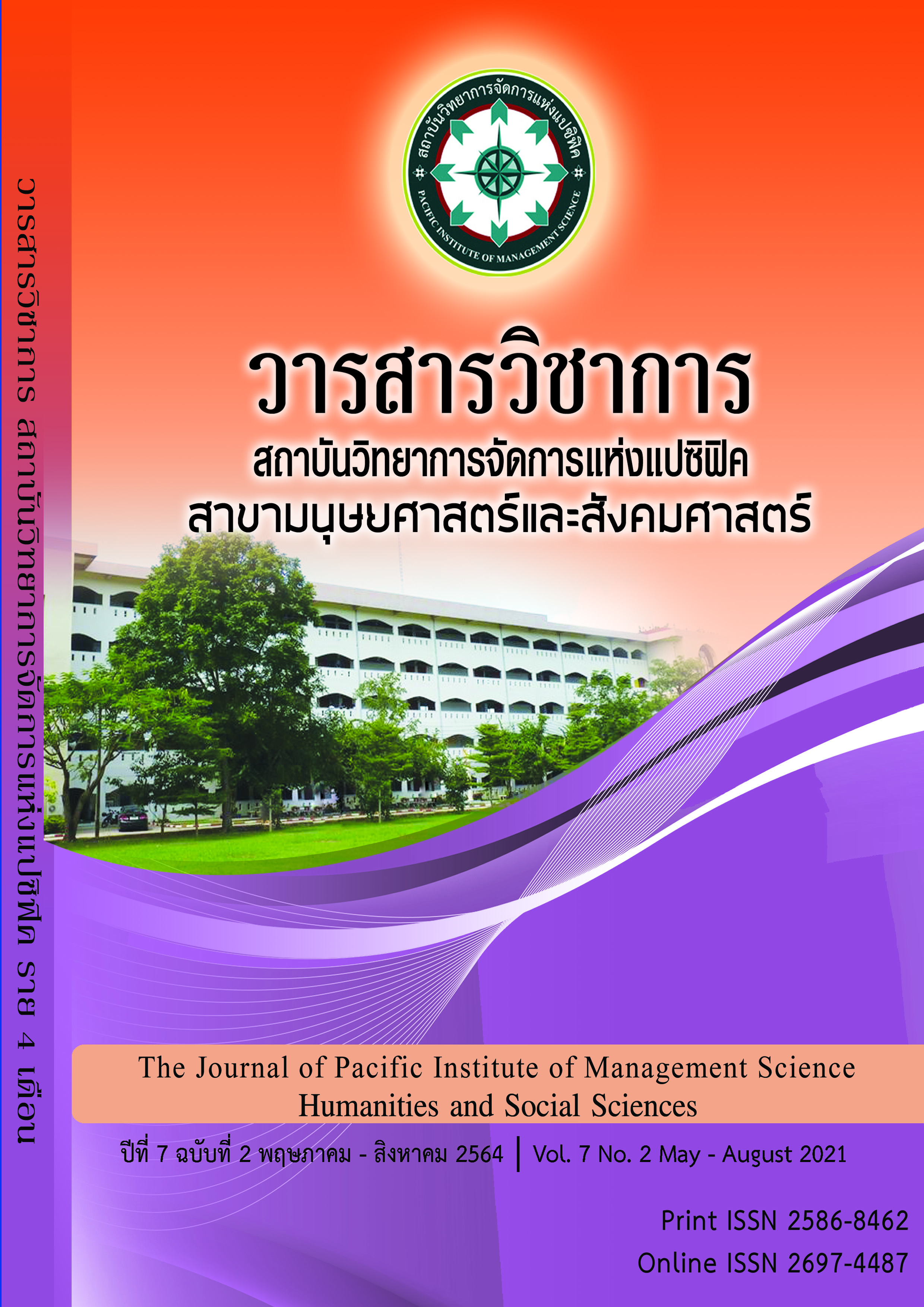Strategies for increasing efficiency of Thai Software Industry Development of the Digital Economy Promotion Agency
Keywords:
Strategies, increasing efficiency, Development, Software IndustryAbstract
The purpose of this research is to study strategies for increasing efficiency in the Thai software industry of the Digital Economy Promotion Agency (DEPA). The objective is (1) Furthermore, to study the level of optimization strategies in the development of the Thai software industry of the Digital Economy Promotion Agency. (2)To study the factors affecting the strategies to increase efficiency in the development of the Thai software industry.(3) To investigate the problems and obstacles of the strategy for increasing efficiency in the development of the Thai software industry. By studying both internal factors and external factors of the organization, including study in terms of the software and animation manufacturers, which are 12 associations and the members in the software industry of Thailand, a total of 1,710 people from a sample of 324 people. Conducting mixed methods research by using qualitative research and quantitative research for use in research studies. Qualitative analysis using content analysis method analysis by taking the data from the interview to analyze substance to find the connected relationship as for the quantitative analysis using Inferential Statistics and Descriptive Statistics to analyze the data.
From the research,
(1) It was found that the strategic level of increasing efficiency in the development of the Thai software industry of the Digital Economy Promotion Agency. It must develop a digital ecosystem to support the adjustment of Thailand 4.0 by having to enhance human resources and increase the potential of digital personnel of the country by doing a holistic level (Integration) to be sustainable and have effective.
(2) Factors are affecting strategies for increasing efficiency in the development of the Thai software industry It consists of a strategy of internal factors. The master plan that has to solve the problems in the industry to be targeted and effective has the most effect on the strategy. As for the external factors affecting the strategy, that is politics has the most effect on the strategy while the unstable economy and society conditions that all affect the strategy to increase efficiency in the development of the Thai software industry.
(3) It is found that the problems and obstacles in using the strategy to increase efficiency in the development of the Thai software industry of the Digital Economy Promotion Agency. There is a marketing problem because most software manufacturers and service providers in Thailand produce and provide software for the domestic market, which lack of networking in the software business group and software services industry. It should focus on strengthening the association and expanding the market overseas. It has production problems that have limitations in researching and development towards product and service innovation. Having financial issues due to small and medium business operators lacking funds for business expansion. There is a problem with human resources, in which the number of internet users is high, but the digital skills of the people are still low. Having environmental issues, which needs to be improved in terms of the law, the rules to reduce various obstacles.
The Guidelines to define the policies and strategic plans for increasing efficiency in the development of the Thai software industry. There should have clear guidelines for development by focusing on strengthening the software association. Build networks to enhance the software industry to be able to compete in foreign countries. Promote researching, modification, and development of innovations and transfer software technology to the industrial sector and developing software workforce.
References
กรมพัฒนาธุรกิจการค้า. (2559). ข้อมูลบริษัทในอุตสาหกรรมซอฟต์แวร์ในประเทศไทยในปี พ.ศ. 2559. กรุงเทพ ฯ: ผู้แต่ง
โกสินทร์ ชำนาญพล. (2558). การพัฒนารูปแบบการจัดการ เครือข่ายการตลาดวิสาหกิจชุมชนท่องเที่ยวไทยเพื่อรองรับประชาคมเศรษฐกิจอาเซียน (วิทยานิพนธ์ดุษฎีบัณฑิต), มหาวิทยาลัย ศิลปากร.
โกสินทร์ ชำนาญพล และสุดาใจ โล่ห์วนิชชัย. (2562). การพัฒนารูปแบบเทคโนโลยีดิจิทัลเพื่อส่งเสริมศักยภาพผู้ประกอบการ. วารสารราชพฤกษ์, 17(2), 130-138
พิชญา วัฒนรังสรรค์. (2558). การเพิ่มประสิทธิภาพในการปฏิบัติงานของพนักงานโรงแรมระดับ 4 ดาว ย่านสยามสแควร์. (ศิลปศาสตรมหาบัณฑิต สาขาวิชาการจัดการอุตสาหกรรมการบริการและการท่องเที่ยว), มหาวิทยาลัยกรุงเทพ.
พระราชบัญญัติการพัฒนาดิจิทัลเพื่อเศรษฐกิจและสังคม. (2560, 24 มกราคม). ราชกิจจานุเบกษา. เล่ม 134 ตอนที่ 10 ก. หน้า 75-95.
สำนักงานส่งเสริมอุตสาหกรรมซอฟแวร์แห่งชาติ. (2558). จำนวนสถานประกอบการอุตสาหรรมซอฟต์แวร์. กรุงเทพ ฯ: ผู้แต่ง. สืบค้นจาก
https://monitor.smp.nso.go.th/report/stat/pu/osstatus/detail?dmt=1&Mode=1&Year=2558&DepartmentId=153
Yamane, T. (1973). Statistics: An introductory analysis. (3rd ed). New York: Harper and Row.
Downloads
Published
Issue
Section
License
Copyright (c) 2021 Pacific Institute of Management Science

This work is licensed under a Creative Commons Attribution-NonCommercial-NoDerivatives 4.0 International License.
บทความที่ได้รับการตีพิมพ์เป็นลิขสิทธิ์ของ สถาบันวิทยาการจัดการแห่งแปซิฟิค
ข้อความที่ปรากฏในบทความแต่ละเรื่องในวารสารวิชาการเล่มนี้เป็นความคิดเห็นส่วนตัวของผู้เขียนแต่ละท่านไม่เกี่ยวข้องกับสถาบันวิทยาการจัดการแห่งแปซิฟิค และคณาจารย์ท่านอื่นๆในสถาบันฯ แต่อย่างใด ความรับผิดชอบองค์ประกอบทั้งหมดของบทความแต่ละเรื่องเป็นของผู้เขียนแต่ละท่าน หากมีความผิดพลาดใดๆ ผู้เขียนแต่ละท่านจะรับผิดชอบบทความของตนเองแต่ผู้เดียว







